03:38
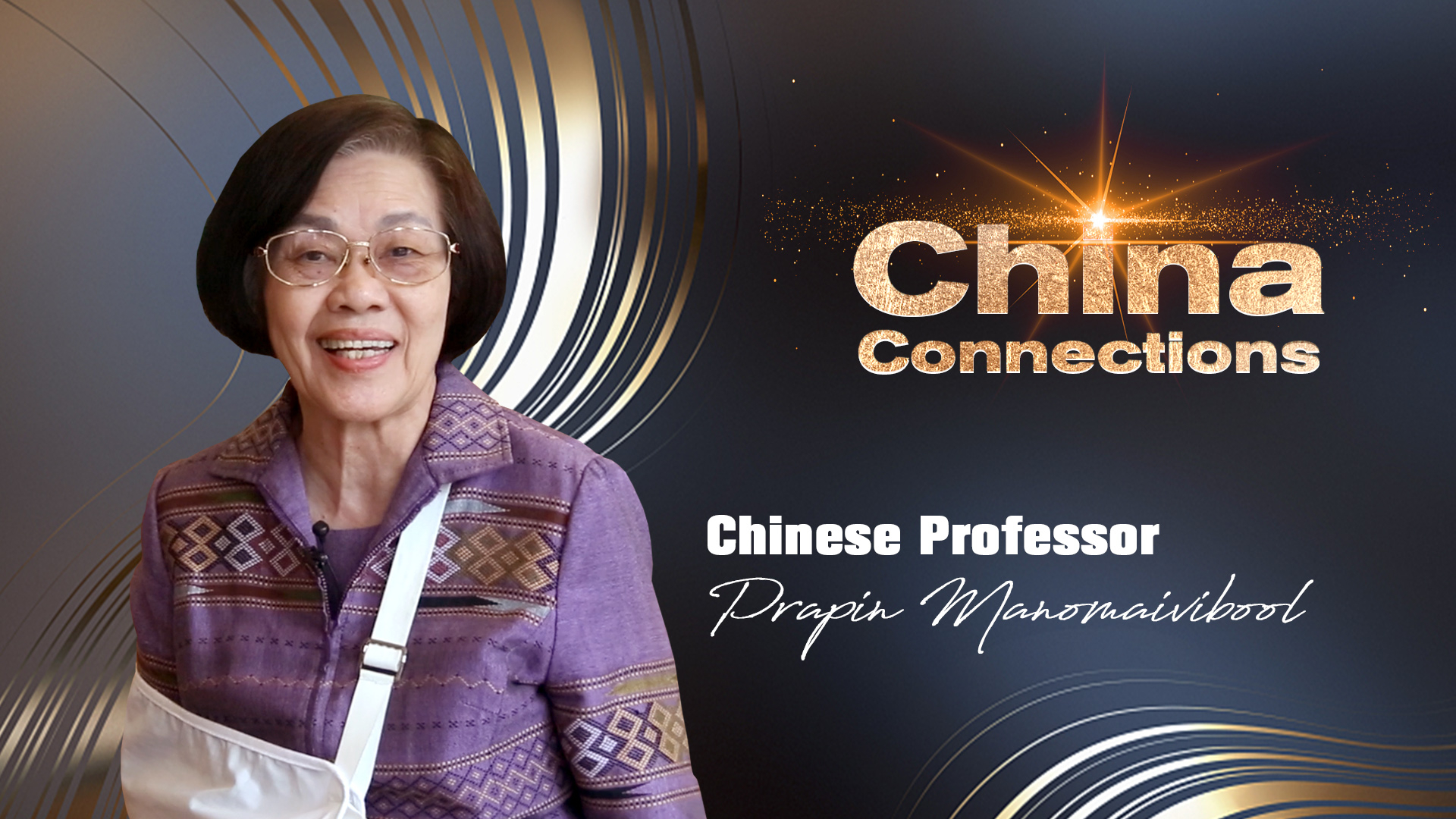
When Prapin Manomaivibool first arrived in the U.S. in 1967, she was not sure what difficulties awaited her in her upcoming studies. Nor was she aware how the track of her life would be altered.
After graduating from Chulalongkorn University in Thailand, she was selected to go to the University of Washington to study Chinese, as part of the faculty preparation for a Chinese program to be launched in the near future.
As a Chinese descendant from Chaozhou, an area renowned for its distinguish local culture in south China’s Guangdong Province, her family still uses the Chaozhou dialect in daily life.
However, Prapin soon realized that the dialect was quite different from the widely spoken Mandarin, and she had to learn the Chinese language from scratch.
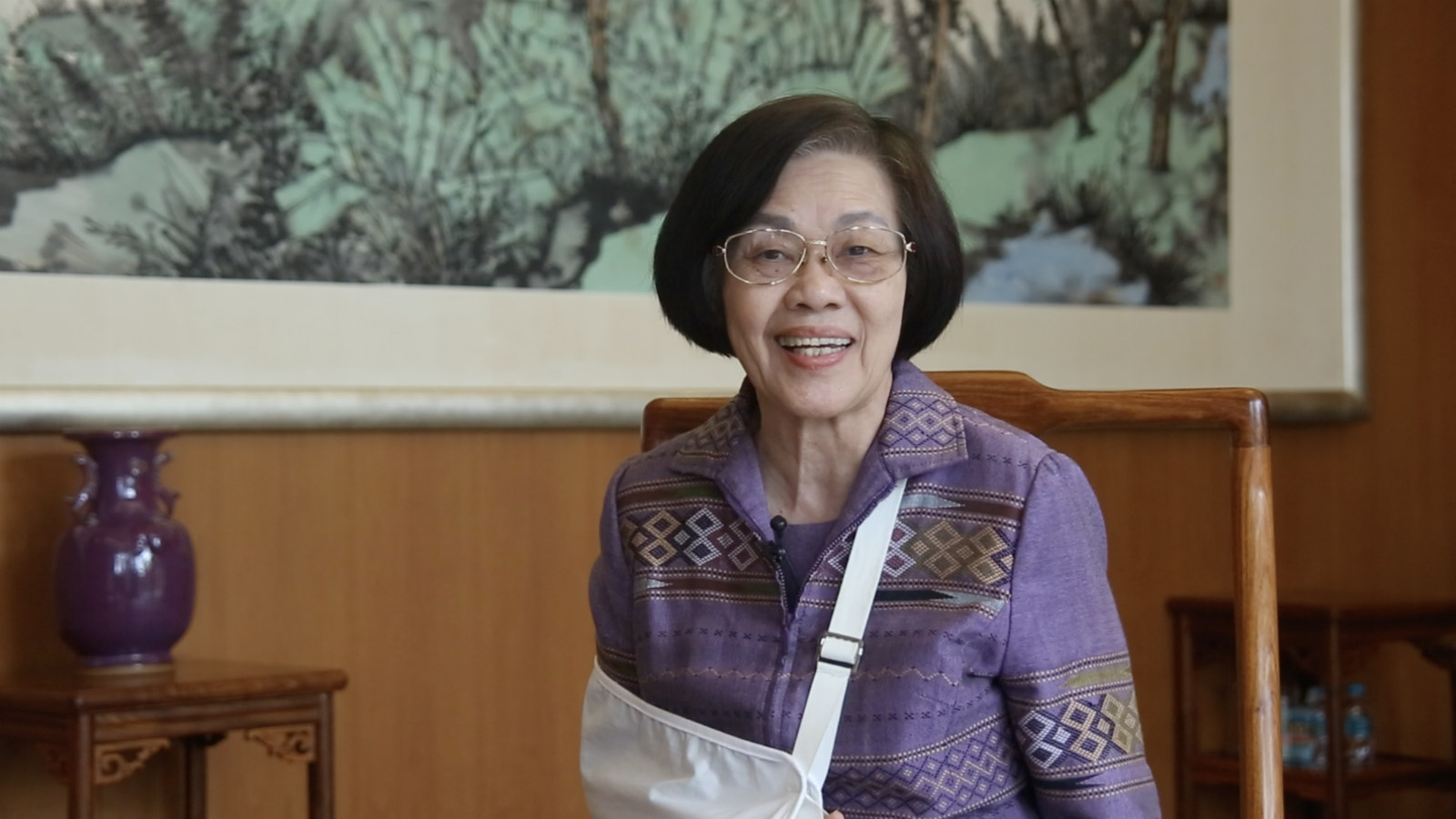
Prapin Manomaivibool, Chinese professor of Chulalongkorn University, being interviewed. /CGTN Photo
Prapin Manomaivibool, Chinese professor of Chulalongkorn University, being interviewed. /CGTN Photo
"I found that the writing system and the sound…almost everything was difficult, and I had to study all the courses required for undergraduates," said Prapin. She told me that it actually took her two years to complete the requirements before finally starting her research in Chinese linguistics.
Prapin received her PhD in Asian Languages and Literature (Chinese) from the University of Washington in 1975, and the language has led her to become a cultural messenger between China and Thailand.
A messenger of China-Thailand friendship
Professor Prapin’s first visit to China was in 1983, when Chulalongkorn University signed the academic exchange deal with Peking University in China. It was the first Thai university to launch a cooperative program, as well as Prapin’s first chance to take a look at the country, the language of which she had studied for years.
“I wanted to know whether the Mandarin in China was the same as what I learned in America,” Parpin said.
She couldn’t help sharing personal anecdotes: After living in Beijing for a while and picking up some northern dialect characterized by “Er Hua Yin” (retroflex), she was repeatedly corrected by her colleagues after returning to Thailand, who though the accent was wrong.
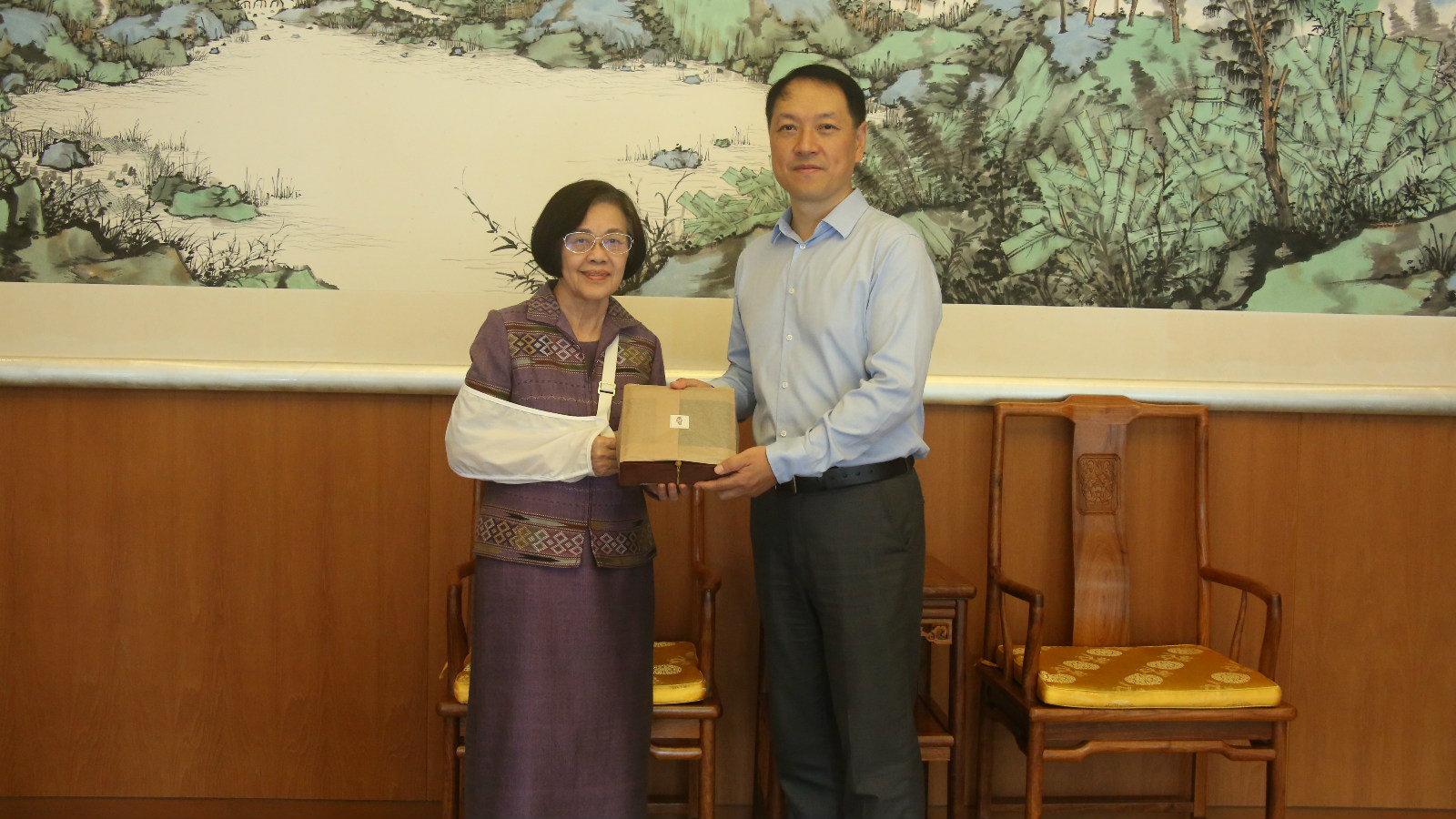
Professor Prapin Manomaivibool poses for photo with Zhang Yong, Deputy Director-General of News and Communications Bureau of CAC, in Bangkok, Thailand, on September 21, 2019. /CGTN Photo
Professor Prapin Manomaivibool poses for photo with Zhang Yong, Deputy Director-General of News and Communications Bureau of CAC, in Bangkok, Thailand, on September 21, 2019. /CGTN Photo
The Chinese language shaped more than her intellectual path. She was later invited to accompany Thai Princess Maha Chakri Sirindhorn on her visits to China, traveling in many Chinese cities and witnessing the changes occurring to the country since her first visit in 1983.
Back then, Beijing’s streets were swarmed with bicycles – the primary method of transportation for local residents aside from buses. Foreigners needed to use “foreign exchange certificates” on their visits, which could be used only in specific stores.
“Now, it’s just extremely different,” said Prapin. “Every year I went there, I saw some differences.”
With China’s progress in reform and opening-up, the rising Chinese economy has gradually changed everything, from tourism to the skylines in the cities, especially in Beijing, Shanghai and Guangzhou.
Cultural exchanges bring us closer
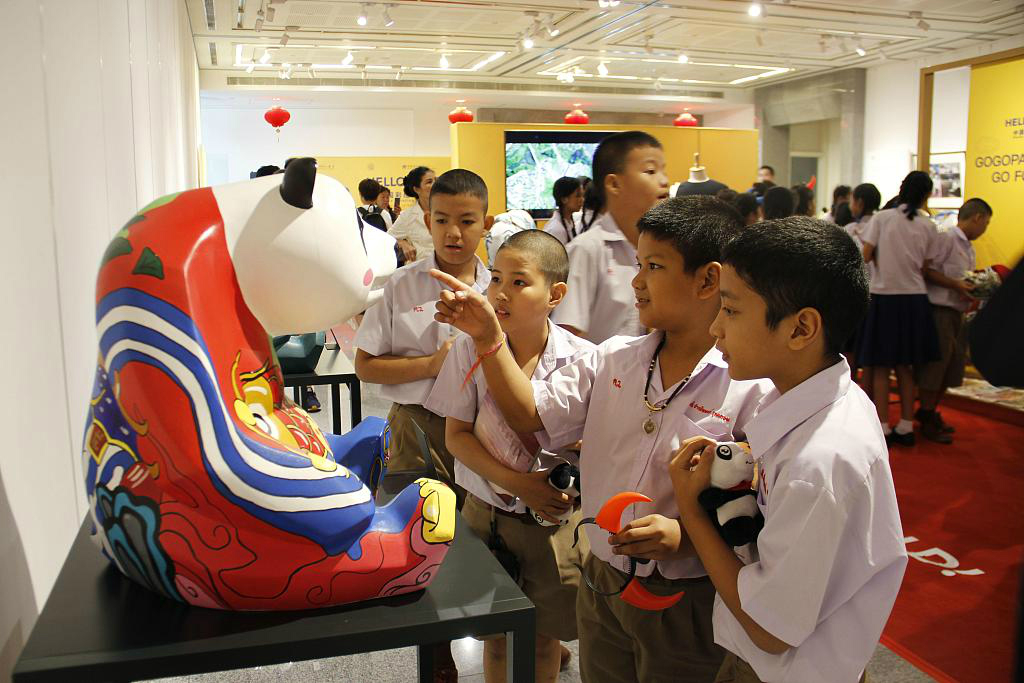
Thai students visit exhibition of painted giant pandas in Bangkok, Thailand. /VCG Photo
Thai students visit exhibition of painted giant pandas in Bangkok, Thailand. /VCG Photo
In recent years, people in China and Thailand have grown much closer thanks to frequent cultural communications.
According to the professor, about 600,000 to 700,000 Thai people are learning Chinese nowadays, from primary school students to adults.
Some of them study the language because their families want them to, and some are out of personal interest. For the latter, pop culture has played a big role.
Prapin told me many of her students started to learn Chinese because they wanted to watch Chinese films and TV series directly, or be able to understand the lyrics of songs they love.
“They all like TV dramas from China, and now we have a lot of translations of Chinese literary works in Thailand, from online and from the written ones,” said Prapin.
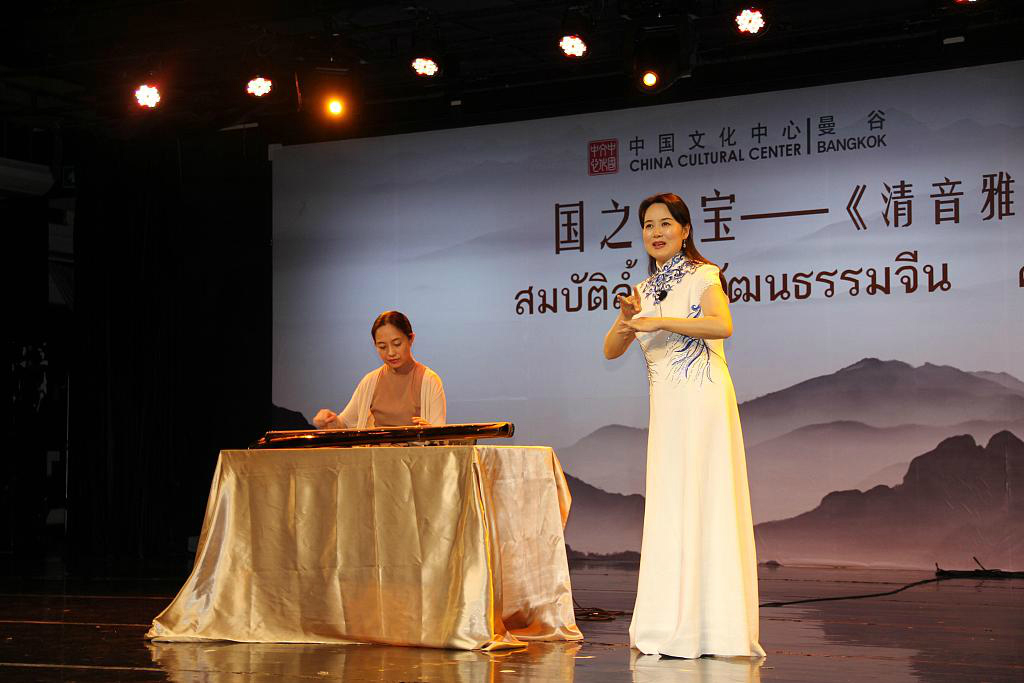
Chinese artists perform at events held by China Cultural Center in Bangkok. /VCG Photo
Chinese artists perform at events held by China Cultural Center in Bangkok. /VCG Photo
“Pop culture has big influences,” Prapin added. She considered it a way for young people to get to know each other, which makes the world smaller, with more friendship and less conflict.
It is hard to quantify the contribution of culture in the maintenance of peace and harmony around the world, but it is easy to give examples.
While asked whether she has anything to say to China and the Chinese people as they have been celebrating the 70th anniversary of the founding of the People’s Republic of China, Prapin said she hopes the influence of Chinese culture could extend beyond Asia, for world peace.
Not only because it has a profound history of over 5,000 years, but also that it is the culture’s merit advocating peace, harmony and devotion to the family, society and nation.
For Prapin herself, Chinese culture has been incorporated into her daily life as well.
“I cannot drink iced tea. I always drink warm water or tea,” Prapin smiled.
Reporter: Ai Yan
Videographer: Ai Yan
Video editor: Ge Kai
Cover image designer: Gao Hongmei